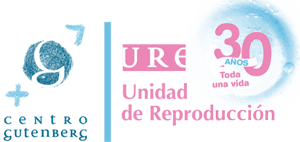Artificial Insemination
What is Artificial Insemination?
Artificial Insemination involves placing sperm inside a woman’s uterus around the time of ovulation.
This procedure is simple, painless and is carried out in the doctor’s office without sedation or surgery.
When is Artificial Insemination indicated?
The indications may vary depending on whether we use sperm from the patient’s spouse or partner, or donor sperm:
With sperm from the spouse or partner:
- Ovulation abnormalities.
- Low sperm count or low sperm motility.
- Difficulty for the sperm to penetrate the uterine cavity.
- Other sperm abnormalities..
- Unexplained infertility.
With donor sperm:
- Azoospermia or the absence of spermatozoids in the male’s semen.
- Severe male factor infertility or patients are not interested in IVF.
- Chromosome or genetic abnormalities.
- Risk of passing on a hereditary disorder or condition.
- Female without male partner who wishes to conceive.
Artificial Insemination Procedure
Artificial Insemination can be performed during the female’s natural cycle or after the process of ovarian stimulation. Ovarian stimulation is a hormone treatment consisting of medications intended to ensure follicle growth and the ovulation of potentially fertile eggs.
Regularly scheduled ultrasound scans, and, on occasion, hormone tests, will be performed to track follicle development.
The sperm sample from the patient’s partner or from the Sperm Bank will be processed by the Andrology Laboratory to select the spermatozoids with the best motility. Donor sperm samples will come from our Sperm Bank or from another duly accredited Sperm Bank. The samples are stored frozen and meet all quality standards. Donors must pass all tests and analyses to guarantee that they comply with all requirements.
The insemination process is completed by placing the selected spermatozoids into the female’s uterus using a flexible catheter. Once the insemination has been performed the female will take a hormone treatment to favour the development of a possible pregnancy. A pregnancy test will be performed approximately two weeks after the artificial insemination procedure.
More info
Complete the form or call us at (+34) 952 122 565.


